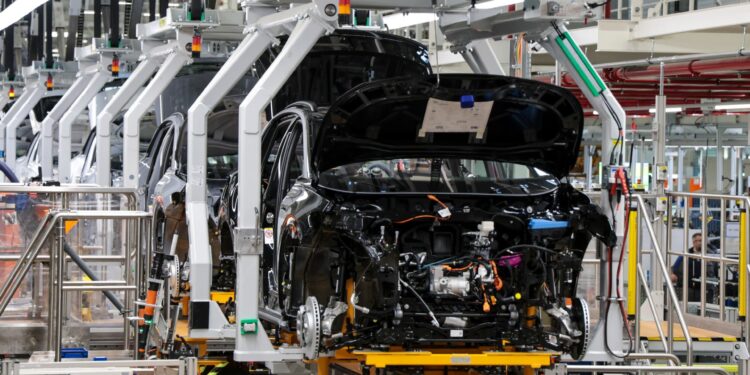A recent poll conducted by the German Economy Institute (IW) revealed that more than a third of German companies expect jobs to be canceled this year 2025, in light of an economic climate characterized by sharp decline and increasing pressure from international trade tensions.
According to the German news agency reported about the results of the survey, which included about two thousand companies during the months of March and April, 35% of the companies reported that they are planning to reduce the number of employees, while 24% announced the intention of expanding employment during the year.
Poisoning indicators despite a slight improvement
The data showed that the general condition is a little better compared to the fall of 2024, as 38% of companies were then expected to reduce employment, compared to only 17% were planning to employ.
But the indicators are still clearly negative, especially in the industrial sector, as 42% of companies indicated the possibility of carrying out the deletion of jobs, compared to only 20% planning to expand.
In the construction sector, the percentage of companies that expect to reduce jobs reached 36%, while the percentage of pessimism was less in the services sector, as it did not exceed 21%.
Internal and external obstacles
In the institute’s analysis, the German economy is still under the weight of geopolitical tensions, and the decline in global demand for industrial products, as well as the continuous effects of the energy crisis.
The institute also pointed out that the high costs of energy, organizational burden, and the lack of qualified workers are all factors that contributed to the decline in the competitiveness of German companies, which led to a weakness in external commercial activities, especially in the field of export.
Trump exacerbates the crisis
In the same context, Bloomberg reported that the economic morale in Germany is under additional pressure due to the commercial policies of US President Donald Trump, who imposed heavy customs duties on imported cars, and launched something similar to a new global trade war.
“Trump’s fluctuating actions come at a completely inappropriate time and constitute a real test of the German economy,” said Michael Groming, head of the German Economy Department at the German Economy Institute.
He added that “the tariff warfare imposes tremendous pressure on the daily business of companies, and the doubts surrounding the American administration leads to an exacerbation of instability.”
Groming noted that the German government is required to coordinate with the European Union to take counter -action that supports stability and provides more certainty of the business environment.
Exports under threat
Although the American fees on the European Union are still temporarily suspended pending negotiations, the institute’s report stressed that the export climate is “pre -poisoned”, and that repeated customs threats reduce the feasibility of investment and expand markets for German companies.
Future future
This warning comes at a time when the German economy suffers from a contraction for the second year in a row, which raises concern about the economic sustainability of the largest economy in Europe.
These numbers highlight the fragility of the current situation, as the influence of global crises overlaps with the pressure of hostile commercial policies, amid a clear absence of long -term stability.
In conclusion, the German economy appears to be an accurate stage of volatility and fog, unless it is reached to collective solutions and international consensus that save it from the stagnation of the stagnation.



